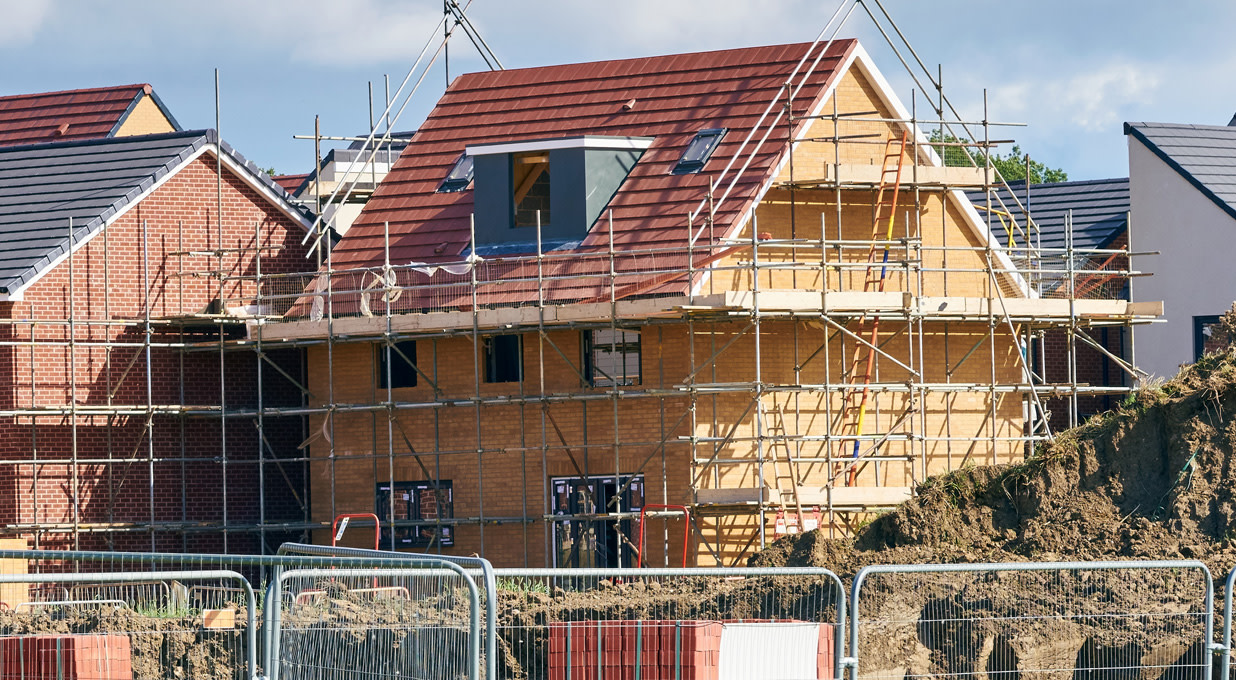Barratt Redrow (formerly Barratt Developments or Barratt) has provided its first trading update since the acquisition of its competitor Redrow. On a standalone basis between 1 July-13 October, Barratt reported an average weekly sales rate of 0.62, up 32% largely due to an easy comparable period. Redrow’s sales rate over the period came in lower at 0.49.
The combined order book stands at 10,619 homes, down from 12,201 homes in the prior year as Barratt and Redrow have seen declines of 5% and 3% respectively.
The group’s land bank stood at 88,880 plots, equivalent to around 5 years of supply based on last year’s completions.
Barratt Redrow expects to complete between 16,600-17,200 new homes this year. It also aims to deliver at least £90mn of cost savings from streamlining operations between the two businesses, with more than £45mn of this targeted in the first year.
The shares rose 2.4% in early trading.
Our view
In its first update since the dotted line was signed on Barratt’s acquisition of Redrow, the enlarged group signalled it’s got big plans ahead. Together, Barratt Redrow expects to deliver between 16,600 and 17,200 new homes this year, with plans to build that figure up to 22,000 over the medium term, making it a serious force in the market.
Not only has the acquisition increased Barratt’s geographical reach, but it’s also increased the different types of customers it appeals to. The Redrow brand focuses on larger, higher-quality homes for more affluent buyers. The higher average selling prices of these homes should be a major positive for margins moving forward.
Sales rates are well ahead of the prior year, and there’s a strong landbank ready to be unleashed when the housing market recovers. Markets are currently pricing in four consecutive cuts to interest rates out to March 2025, which should ease mortgage availability and affordability pressures for buyers. Barratt Redrow looks well placed to be buoyed by the rising tide.
Integration efforts are in full swing, and Barratt hopes it can deliver at least £90mn of cost savings by trimming the fat on overlapping operations. If operations can be streamlined and new homes delivered as expected, there’s plenty of opportunity for profits to rebound over the medium term. But as with any merger, there will be challenges.
With a new government in power, there has been a fresh dose of hope that the issues plaguing the housebuilding industry can be fixed. Reform of the current planning rules is key to an uplift in activity, and Barratt appears optimistic that it’s on the way.
This optimism comes with warnings. The housing market remains relatively subdued, and there are no guarantees that rate cuts will stimulate buyer demand. Elevated levels of incentives, used to boost sales, have also weighed on profitability in recent times. This means shareholder returns have taken a back seat as the group manages its investments and cash flows carefully.
On the balance sheet side, structuring the deal as a share offer means that it shouldn’t have eaten too much into Barratt’s sizable net cash position, which was £0.9bn at the last count. That gives flexibility to cope with a challenging market in the near term.
Barratt Redrow now has a strong landbank to unleash when the market picks back up. It’ll likely be a year or so before major benefits start to feed through to profits and there are no guarantees. In the meantime, Barratt's valuation remains depressed, a reflection of the tricky market conditions.
Environmental, social and governance (ESG) risk
Most housebuilders are relatively low risk in terms of ESG, particularly for those in Europe. However, there are some environmental risks to consider, from direct emissions to the impact of their buildings on the local ecology. The quality and safety of their buildings is also a key risk.
According to Sustainalytics, Barratt Redrow’s management of ESG risk is strong.
Commitments are in place to deliver net zero houses by 2030 through a combination of energy-efficient equipment, the use of renewables and the establishment of alternative heating technologies. While Barratt reports that all its revenues come from sustainable products, the total portion of recycled materials used in its operations is undisclosed.
Barratt Redrow key facts
All ratios are sourced from Refinitiv, based on previous day’s closing values. Please remember yields are variable and not a reliable indicator of future income. Keep in mind key figures shouldn’t be looked at on their own – it’s important to understand the big picture.
This article is not advice or a recommendation to buy, sell or hold any investment.No view is given on the present or future value or price of any investment, and investors should form their own view on any proposed investment.This article has not been prepared in accordance with legal requirements designed to promote the independence of investment research and is considered a marketing communication.Non - independent research is not subject to FCA rules prohibiting dealing ahead of research, however HL has put controls in place(including dealing restrictions, physical and information barriers) to manage potential conflicts of interest presented by such dealing.Please see our full non - independent research disclosure for more information.


